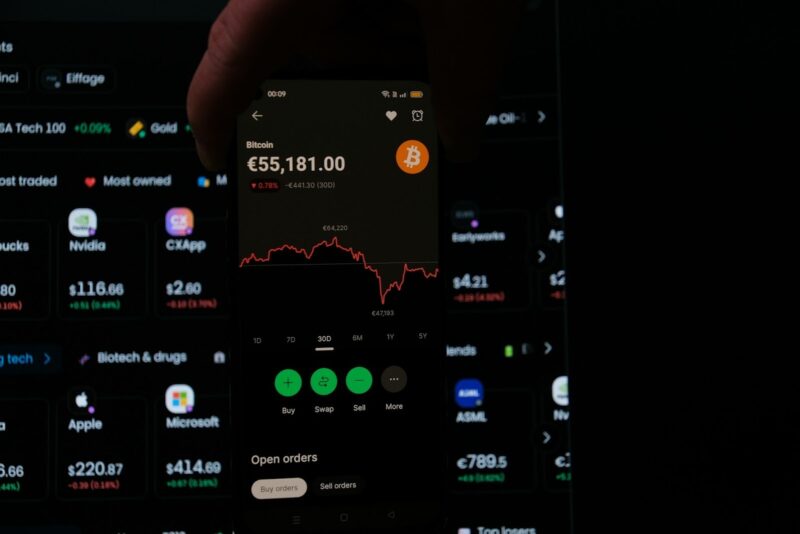Table of Contents
ToggleBeing a good digital citizen means using technology safely, responsibly, respectfully, and ethically. And the latest tech innovations are helping us do exactly that. Want to know more? These are the 5 crypto innovations reshaping digital citizenship.
Decentralized Identity Solutions
The first of the crypto innovations reshaping digital citizenship in a big way is the decentralized identity solution. A decentralized identity allows people to own, manage, and control their personal information. It eliminates the need for reliance on outside authority, placing personal identity control in the individual’s hands.
Decentralized identity also supports seamless functionality across multiple platforms and applications, without requiring multiple logins. This not only saves people a lot of time and inconvenience, but it also allows them to be more selective with whom they share their private data.
And that brings us to the most important aspect of decentralized identity solutions — enhanced privacy and security. A comprehensive Know Your Client KYC checklist helps users navigate the verification process in decentralized systems. It ensures privacy while also meeting regulatory standards.
Blockchain-Based Voting Systems
Thought Blockchain technology is only useful for cryptocurrency transactions? Blockchain is being increasingly used to enhance the security and transparency of many other processes, even supply chain management. But it is making the biggest impact of all on modern voting systems.
The electoral process is the backbone of democracy, but only when it is free from corruption. And in the digital age, that means free from data breaches and manipulation. Another common challenge is ensuring that voters don’t vote multiple times. But that requires a safe and secure voter verification process.
Blockchain-based voting meets this need. A KYC checklist can help safeguard digital citizenship here too. It helps to streamline the voter verification process and ensures that only eligible citizens vote. And even while it does so, it also protects voters’ identities, ensuring that every vote cast is private.
Tokenized Digital Assets
Tokenized digital assets represent ownership of real-world assets as digital tokens on a blockchain. Issued and traded on blockchain platforms, they can represent anything of value. Tokenized digital assets offer an extra layer of security that traditional investment vehicles typically have not had.
But more than that, digital asset tokenization is changing the ownership landscape.
When an asset is tokenized, the ownership rights are encoded into a digital token. This can even be done for conventionally illiquid assets. These are assets that cannot be quickly or easily converted into cash, without potentially suffering a significant loss in its value. An example of such an asset is real estate.
Using tokenized assets for these types of transactions enables easier transferability of such assets and even fractional ownership. However crypto innovations like tokenized digital assets have even more far-reaching implications for digital citizenship.
Along with cryptocurrencies and Blockchain technology, they make it easier for individuals to access financial wealth opportunities regardless of status or location.
Smart Contracts for Social Services
Smart contracts are typically used for financial transactions, and sometimes in insurance and supply chain management. But their usefulness does not end there. They are revolutionizing social services, too. Smart contracts automate processes, enhance security, and make these services more accessible to all.
Potential uses include welfare and benefits distribution, without intermediaries, and even healthcare admin processes like appointment scheduling and patient data management. This streamlines operations, reducing administrative burden and cost and removing the risk of human error.
Leveraging smart contracts for social services and healthcare also enhances security, preserving data integrity and privacy. This is how digital citizenship is meant to be. It’s the responsible and respectful use of technology that improves people’s lives.
Decentralized Finance (DeFi) for Financial Inclusion
In centralized finance (CeFi), centralized authorities such as banks control financial assets and transactions. With the rise of decentralized finance solutions, people can choose to control their wealth outside of these financial power structures.
Decentralized Finance (DeFi) is a financial system that is built on blockchain technology. It allows peer-to-peer transactions without having to use traditional financial intermediaries such as banking institutions or brokerages.
This means that those segments of the population that previously had no or limited access to banking can now access financial services. And they will have more control over their financial assets, than ever before.
Crypto innovations like cryptocurrencies and Blockchain technology offer many benefits. They allow fast, safe, and secure transactions that are safe from the effects of inflation. They offer greater privacy, but also transparency. Cryptotrading has also opened the door to more diverse investments.
However, the biggest benefit is that they advance economic participation. Therefore, DeFi is one of the biggest drivers of financial empowerment among the masse, reshaping digital citizenship around the world.







